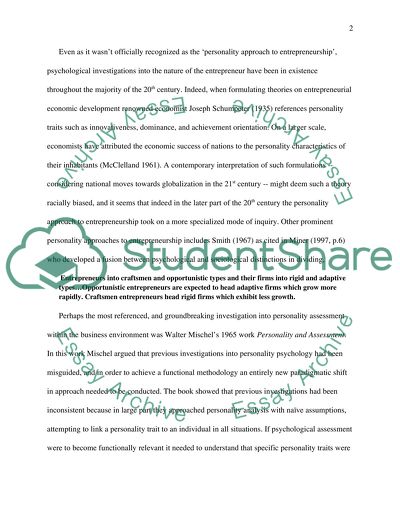Cite this document
(“Personality Approach to Entrepreneurship Essay Example | Topics and Well Written Essays - 2000 words”, n.d.)
Personality Approach to Entrepreneurship Essay Example | Topics and Well Written Essays - 2000 words. Retrieved from https://studentshare.org/professional/1562268-entrepreneurship-and-small-firms
Personality Approach to Entrepreneurship Essay Example | Topics and Well Written Essays - 2000 words. Retrieved from https://studentshare.org/professional/1562268-entrepreneurship-and-small-firms
(Personality Approach to Entrepreneurship Essay Example | Topics and Well Written Essays - 2000 Words)
Personality Approach to Entrepreneurship Essay Example | Topics and Well Written Essays - 2000 Words. https://studentshare.org/professional/1562268-entrepreneurship-and-small-firms.
Personality Approach to Entrepreneurship Essay Example | Topics and Well Written Essays - 2000 Words. https://studentshare.org/professional/1562268-entrepreneurship-and-small-firms.
“Personality Approach to Entrepreneurship Essay Example | Topics and Well Written Essays - 2000 Words”, n.d. https://studentshare.org/professional/1562268-entrepreneurship-and-small-firms.


